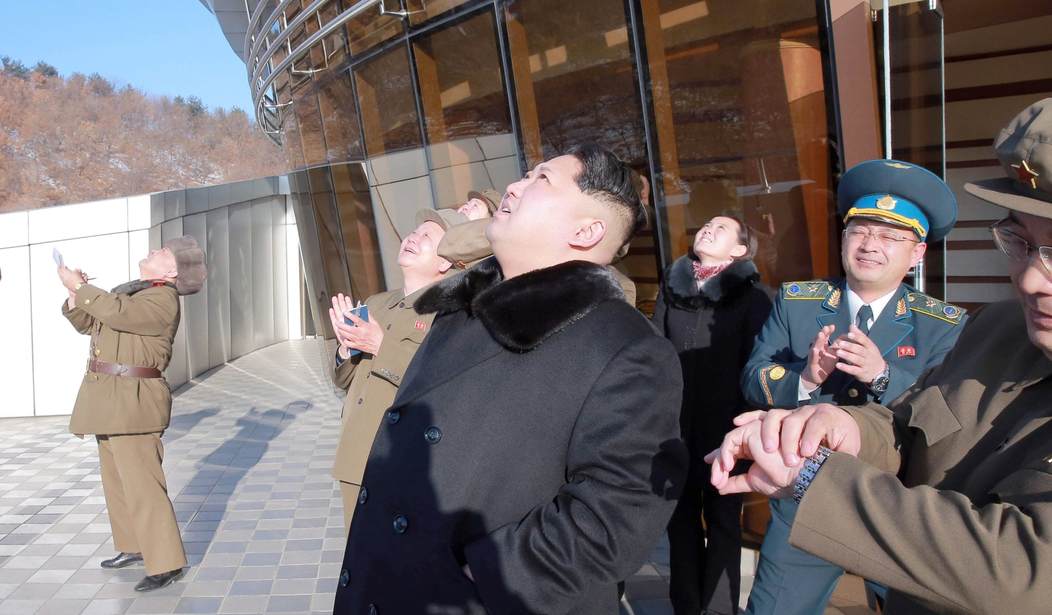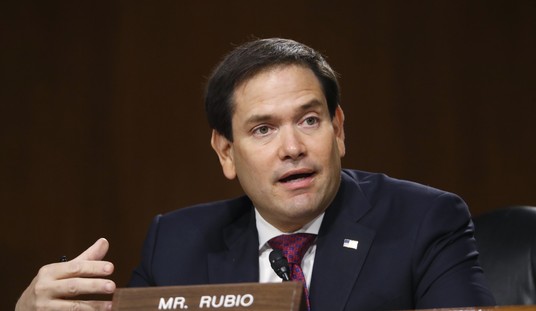The South Korean government is warning that North Korea is preparing to go ahead with a fifth nuclear test, on the heels of a nuclear test just this past January.
President Park Geun-hye said today that Pyongyang has “completed its preparations for a fifth nuclear test and it is in a situation in which it can carry out” the test at any time, according to Yonhap news agency.
The test would likely mark the early May congress of the ruling Workers’ Party, a rare gathering for which Kim Jong-un would want to display another show of power following last week’s submarine-launched ballistic missile test.
“If North Korea continues to stage a provocation in disregard of warnings of the international community, it will hasten its collapse,” said Park, who is calling for even weightier sanctions on Kim’s regime.
Park’s prediction of an impending fifth nuclear test was the first question out of the gate to White House press secretary Josh Earnest at today’s briefing.
“I don’t have a new assessment to share in terms of potential steps that North Korea could potentially take. Over the last several months, we’ve seen them engaged in a serious of actions that are in direct contradiction to U.N. Security Council resolutions. We have expressed our strong concern about those provocative actions. We have marshaled the international community accordingly,” Earnest replied.
“And earlier this year, there was a response from the United Nations that actually put in place the farthest-reaching sanctions against North Korea that targeted specific elements of their economy, such as it is, that we know are used to fund these elicit activities.”
Earnest added that “we’re going to continue to ramp up the pressure on the North Korean regime.”
“We’re going to continue to work closely with the Chinese government, that has more influence with the North Korean government than any other country in the world,” he said. “And, you know, we’re going to continue to make clear that the path that North Korea must choose to rejoin the international community is one that involves them committing to denuclearize the Korean Peninsula and come into compliance with their international obligations.”
The Obama administration is currently in talks with South Korea about potential deployment of a THAAD battery — Terminal High Altitude Area Defense, which, according to manufacturer Lockheed Martin, is fired from a truck-mounted launcher and can intercept missiles inside and outside the atmosphere.
Earnest said that’s “not a response to recent provocations from North Korea, but rather, a response to the threat that has emanated from North Korea for quite sometime now” — though “the beginning of those conversations was in response to a specific and recent event.”
“The president is quite confident in the defense capabilities that we have to protect the American people and to protect our allies in the Asia-Pacific. It means we need to continue to monitor the threat that’s emanating from North Korea,” he said. “It means we need to be nimble and adjust our strategy accordingly. But there has been a significant commitment of resources and a lot of time spent, considering how we can best arrange those resources to protect our allies and protect the American people. And that work is ongoing.”
“As it relates to the impact of sanctions, we have not yet seen the desired change in behavior that is long overdue. But what we have succeeded in doing is working with the international community to ramp up the pressure on the North Korean government even further.”
A spokesman for North Korea foreign ministry today called the submarine missile test “a historical event as it provided another means of powerful nuclear attack of Juche Korea,” according to remarks carried by the official Korean Central News Agency.
“Now that the U.S. is rendering the situation extremely tense while persisting in hostile policy and nuclear threats to the DPRK, the only way for the DPRK to avert thermo-nuclear war on the Korean peninsula and the region is to ensure balance of force by dint of powerful nuclear deterrence,” the statement added.
“…The U.S. continued pursuance of extreme hostile policy and nuclear threat and blackmail against the DPRK will only make the latter make drastic progress in bolstering nuclear attack capabilities.”









Join the conversation as a VIP Member